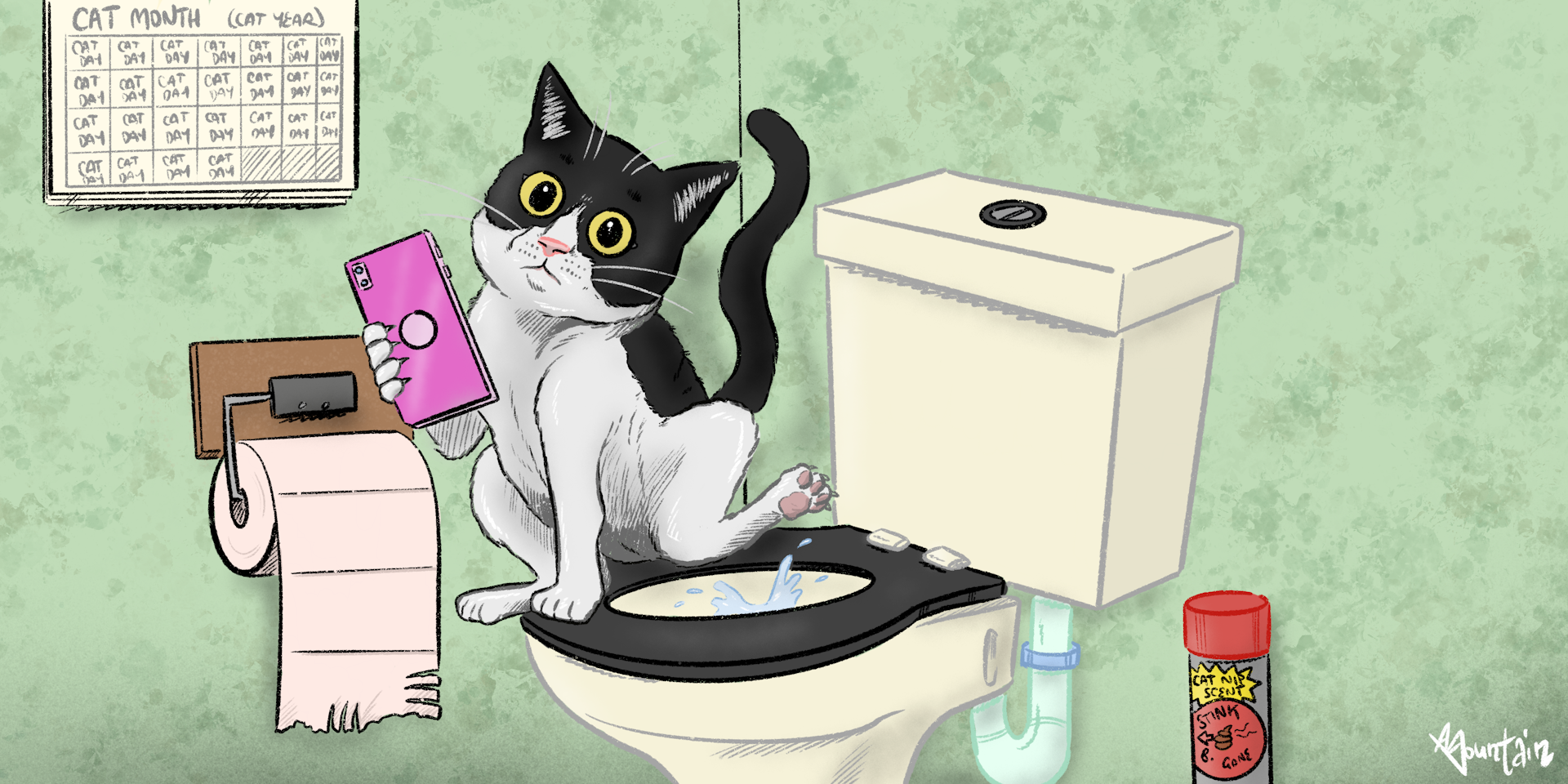The Consequences of Flushing Cat Poop Down Your Toilet - Safeguard Your Pipes
The Consequences of Flushing Cat Poop Down Your Toilet - Safeguard Your Pipes
Blog Article
We've stumbled on this article about Don’t flush cat feces down the toilet listed below on the net and decided it made perfect sense to talk about it with you on this page.

Intro
As cat owners, it's necessary to be mindful of how we dispose of our feline close friends' waste. While it might seem hassle-free to purge feline poop down the bathroom, this method can have damaging consequences for both the setting and human health.
Alternatives to Flushing
Luckily, there are more secure and more responsible means to get rid of cat poop. Consider the following choices:
1. Scoop and Dispose in Trash
One of the most common method of dealing with feline poop is to scoop it right into an eco-friendly bag and toss it in the trash. Be sure to make use of a devoted clutter scoop and dispose of the waste without delay.
2. Use Biodegradable Litter
Go with biodegradable feline clutter made from products such as corn or wheat. These litters are environmentally friendly and can be safely taken care of in the trash.
3. Bury in the Yard
If you have a lawn, consider hiding pet cat waste in a designated area far from veggie gardens and water sources. Be sure to dig deep adequate to prevent contamination of groundwater.
4. Install a Pet Waste Disposal System
Invest in a pet dog garbage disposal system especially designed for cat waste. These systems use enzymes to break down the waste, lowering smell and environmental influence.
Health and wellness Risks
Along with ecological issues, flushing cat waste can likewise present wellness dangers to people. Cat feces may include Toxoplasma gondii, a bloodsucker that can trigger toxoplasmosis-- a potentially severe health problem, especially for expecting ladies and individuals with weakened immune systems.
Ecological Impact
Purging pet cat poop introduces damaging virus and bloodsuckers right into the water, posturing a significant threat to aquatic ecological communities. These pollutants can adversely impact aquatic life and compromise water quality.
Conclusion
Accountable animal possession expands beyond supplying food and sanctuary-- it also involves appropriate waste administration. By refraining from flushing pet cat poop down the bathroom and choosing alternate disposal techniques, we can reduce our environmental impact and shield human wellness.
Why You Should Never Flush Cat Poop Down the Toilet
A rose by any other name might smell as sweet, but not all poop is created equal. Toilets, and our sewage systems, are designed for human excrement, not animal waste. It might seem like it couldn’t hurt to toss cat feces into the loo, but it’s not a good idea to flush cat poop in the toilet.
First and foremost, assuming your cat uses a litter box, any waste is going to have litter on it. And even the smallest amount of litter can wreak havoc on plumbing.
Over time, small amounts build up, filling up your septic system. Most litter sold today is clumping; it is made from a type of clay that hardens when it gets wet. Ever tried to scrape old clumps from the bottom of a litter box? You know just how cement-hard it can get!
Now imagine just a small clump of that stuck in your pipes. A simple de-clogger like Drano isn’t going to cut it. And that means it’s going to cost you big time to fix it.
Parasitic Contamination
Believe it or not, your healthy kitty may be harboring a nasty parasite. Only cats excrete Toxoplasma in their feces. Yet it rarely causes serious health issues in the cats that are infected. Most people will be fine too if infected. Only pregnant women and people with compromised immune systems are at risk. (If you’ve ever heard how women who are expecting are excused from litter cleaning duty, Toxoplasma is why.)
But other animals may have a problem if infected with the parasite. And human water treatment systems aren’t designed to handle it. As a result, the systems don’t remove the parasite before discharging wastewater into local waterways. Fish, shellfish, and other marine life — otters in particular — are susceptible to toxoplasma. If exposed, most will end up with brain damage and many will die.
Depending on the species of fish, they may end up on someone’s fish hook and, ultimately on someone’s dinner plate. If that someone has a chronic illness, they’re at risk.
Skip the Toilet Training
We know there are folks out there who like to toilet train their cats. And we give them props, it takes a lot of work. But thanks to the toxoplasma, it’s not a good idea.

As a serious person who reads about Don’t flush cat feces down the toilet, I think sharing that excerpt was worth the trouble. Do you know about someone else who is serious about the subject? Feel free to share it. I praise you for your time. Kindly check up our site back soon.
Click Here Report this page